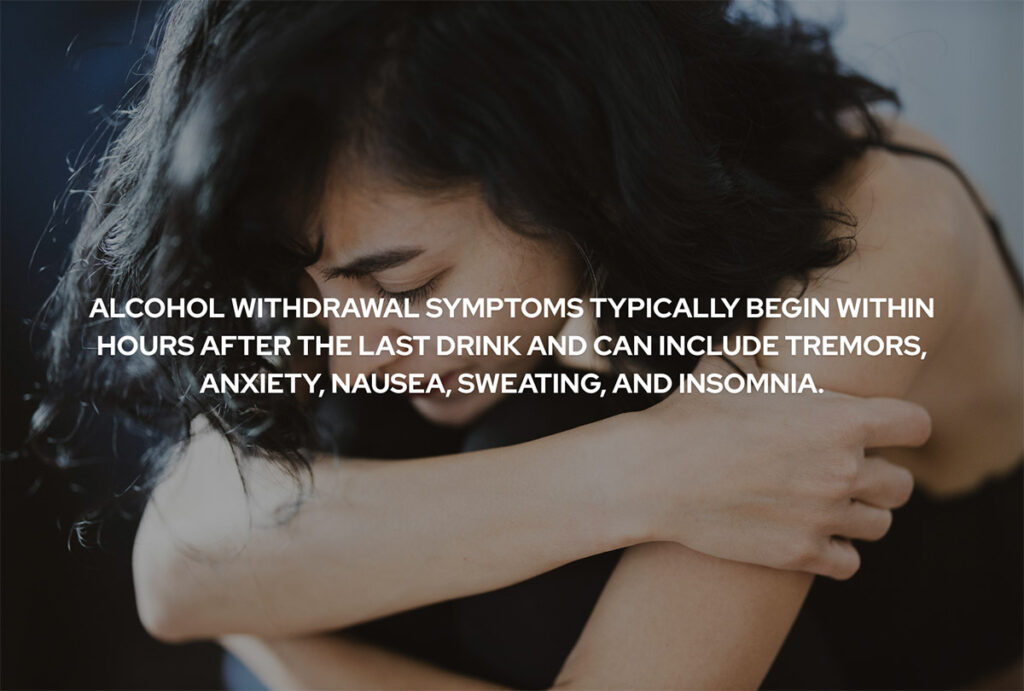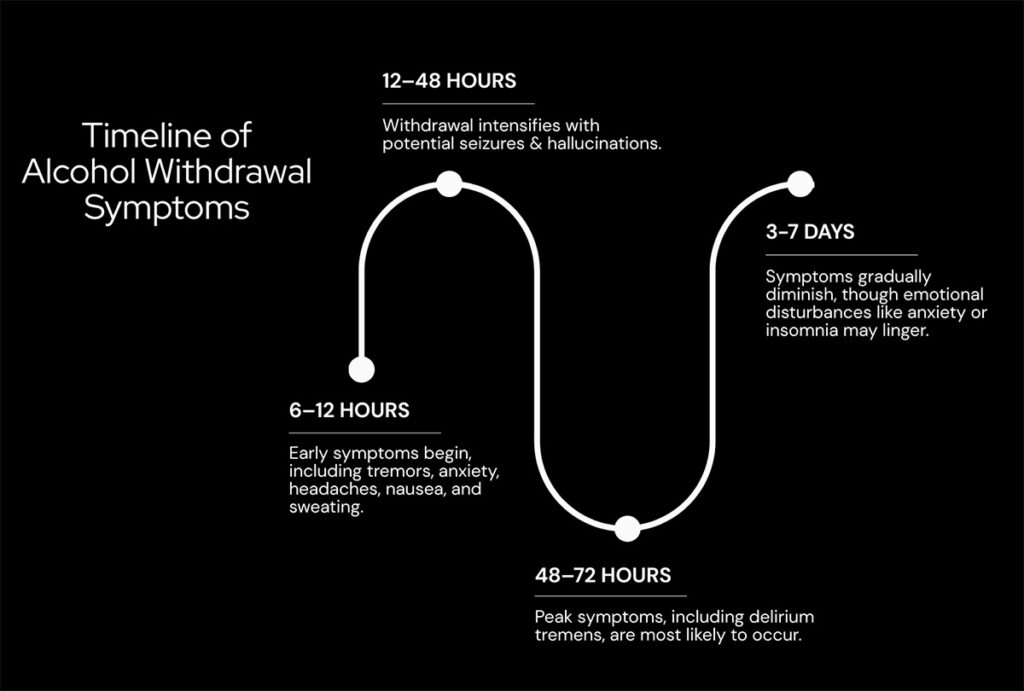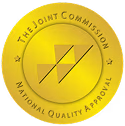Alcohol withdrawal symptoms include tremors, anxiety, nausea, sweating, and insomnia, typically beginning within hours after the last drink. These symptoms occur when someone who regularly consumes alcohol suddenly stops or significantly reduces their drinking. Severe withdrawal can lead to potentially life-threatening conditions, such as seizures and delirium tremens (DTs).
Understanding alcohol withdrawal symptoms can help individuals and healthcare providers manage detoxification safely and effectively.

Common Alcohol Withdrawal Symptoms
Alcohol withdrawal manifests with both physical and psychological symptoms. Here are the most frequent symptoms:
1. Tremors (Shaking)
Tremors, or uncontrollable shaking, are among the earliest and most recognizable withdrawal symptoms. These typically occur in the hands and can spread to the entire body.
2. Anxiety and Nervousness
Increased anxiety and nervousness are common as alcohol depresses the central nervous system. When alcohol intake stops, the nervous system becomes overactive, resulting in heightened anxiety.
3. Nausea and Vomiting
Digestive discomfort, nausea, and vomiting frequently occur during alcohol withdrawal due to gastrointestinal irritation and electrolyte imbalance caused by chronic alcohol use.
4. Sweating
Heavy sweating occurs as the body struggles to regulate temperature without alcohol. Excessive sweating can contribute to dehydration during withdrawal.
5. Headache
Headaches are common due to changes in brain chemistry, dehydration, and electrolyte imbalances that occur during withdrawal.
6. Insomnia and Sleep Disturbances
Alcohol withdrawal frequently causes insomnia or difficulty staying asleep, due to heightened nervous system activity and disrupted circadian rhythms.
7. Increased Heart Rate and Blood Pressure
Rapid heart rate (tachycardia) and high blood pressure are common withdrawal symptoms, signaling that the body's cardiovascular system is under stress.
Severe Alcohol Withdrawal Symptoms
Severe alcohol withdrawal can escalate into dangerous medical conditions. These symptoms require immediate medical attention:
1. Seizures
Alcohol withdrawal seizures typically occur within the first 12–48 hours after stopping alcohol consumption. They may happen without prior warning and can be life-threatening.
2. Hallucinations
Visual, auditory, or tactile hallucinations can develop within 12–48 hours of the last drink. These can cause significant distress and confusion.
3. Delirium Tremens (DTs)
Delirium tremens represents the most severe form of alcohol withdrawal, typically starting 48–72 hours after cessation. Symptoms of DTs include:
- Severe confusion and disorientation
- High fever and excessive sweating
- Hallucinations and delusions
- Extreme agitation
- Rapid heartbeat and seizures
DTs can be fatal if untreated; prompt medical intervention is essential.

Timeline of Alcohol Withdrawal Symptoms
Alcohol withdrawal symptoms generally follow this timeline:
- 6–12 hours after last drink: Early symptoms begin, including tremors, anxiety, headaches, nausea, and sweating.
- 12–48 hours after last drink: Withdrawal intensifies with potential seizures and hallucinations.
- 48–72 hours after last drink: Peak symptoms, including delirium tremens, are most likely to occur.
- 3–7 days after last drink: Symptoms gradually diminish, though emotional disturbances like anxiety or insomnia may linger.
Factors Influencing Severity of Alcohol Withdrawal
Several factors influence how severe alcohol withdrawal becomes:
- Length and frequency of alcohol consumption: Longer periods of heavy drinking generally lead to more severe withdrawal symptoms.
- Previous withdrawal experiences: Individuals who have experienced withdrawal in the past are at greater risk of severe symptoms in subsequent episodes.
- General health status: Poor nutritional status or existing health issues can complicate withdrawal, making symptoms more intense.
Managing Alcohol Withdrawal Symptoms
Effective management strategies significantly reduce withdrawal risks. These include:
1. Medically Supervised Detox
Detoxification under medical supervision is critical, especially for individuals at risk of severe withdrawal. Healthcare providers administer medications such as benzodiazepines to manage anxiety, seizures, and other withdrawal symptoms safely.
2. Hydration and Nutritional Support
Maintaining hydration and proper nutrition during withdrawal helps restore electrolyte balance and reduces symptom severity.
3. Counseling and Therapy
Professional counseling, including cognitive-behavioral therapy (CBT), assists individuals in managing psychological symptoms, cravings, and long-term recovery strategies.
4. Support Groups
Joining support groups, such as Alcoholics Anonymous (AA), provides emotional support and practical advice from individuals who have experienced similar challenges.
Potential Complications of Alcohol Withdrawal
Without proper medical support, alcohol withdrawal can lead to severe complications, including:
- Dehydration and Electrolyte Imbalances: Excessive sweating, vomiting, and lack of fluid intake can cause dangerous imbalances.
- Cardiac Issues: Elevated heart rate and high blood pressure significantly increase the risk of heart attack or stroke.
- Neurological Damage: Severe seizures or prolonged delirium can cause permanent neurological impairments.
When to Seek Medical Help for Alcohol Withdrawal?
Immediate medical care is necessary if experiencing any severe symptoms, including seizures, hallucinations, delirium, chest pain, or severe confusion. Early medical intervention reduces the risk of fatal complications and improves overall recovery outcomes.
For comprehensive information and immediate help, individuals should consult resources such as our alcohol addiction treatment program.
Recognizing alcohol withdrawal symptoms and seeking prompt medical care are critical steps toward a safe and successful recovery.





.png)
